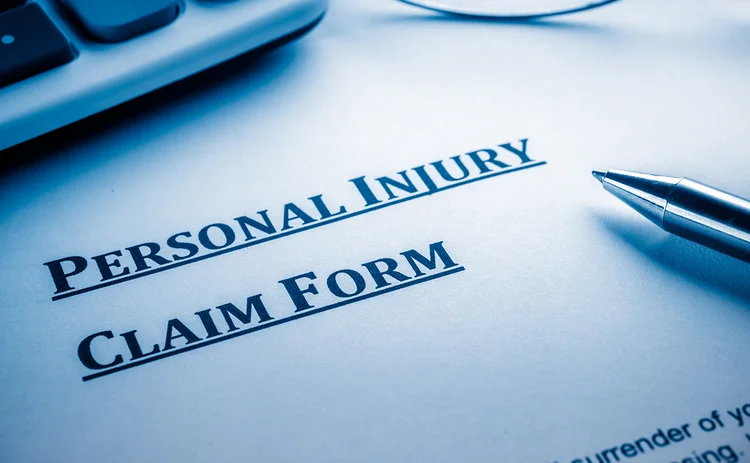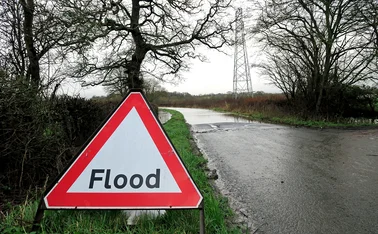
Whiplash reform 'should be delayed further' if testing reveals problems

Whiplash reforms should be delayed still further if testing proves the system is inaccessible for people unable to access the internet, MPs have warned.
A letter sent to Justice Secretary David Gauke by Justice Committee chairman Bob Neill reveals that the committee would welcome further delays to the new portal past April 2020 if required.
He hinted that the committee has concerns that the reform package, which is part of the Civil Liability Bill, may not work for people who are “digitally disenfranchised”. He requested confirmation that if this proves to be a problem then they could be pushed back even further.
Neill wrote: “We are particularly pleased that the government is now working towards a more realistic date of April 2020 for implementing the reform package - including roll-out of the on line platform for small personal injury claims - and that implementation will be preceded by a six-month period of large-scale user testing of the on line platform and the guidance to support this.”
However, he added: “Please could you confirm that there would be a further delay in implementation should user testing demonstrate that the platform or user guidance needs additional development time, or should the ‘assisted digital’ route prove inadequate to meet the needs of those who are digitally disenfranchised.”
The concerns raised come at a time when there has been criticism of another online system implemented by the government. A whistleblower has condemned its digital Universal Credit benefits system over its alleged lack of suitability for non-digitally-savvy users, as reported by the Guardian last Sunday.
Claimant lawyers call for thorough testing
Claimant lawyers have welcomed Neill’s caution.
Access to Justice spokesperson Andrew Twambley told Post: “While the government fiddles, Bob Neill is rightly worried that important principles of civil justice could burn if the online claims portal fails to do its job properly, and injured people will be the ones to suffer.
“We support his demand for a copper bottomed guarantee from the MoJ that the new online process will be thoroughly tested, and that plans are in place for citizens without access to online technology to be properly cared for.”
Twambley added: “The overriding aim of this reform programme should be should be to make sure the technology delivers better customer outcomes than the present system. If it cannot achieve that, ministers should have the courage to scrap the current proposals and adopt a different approach that better balances claims costs and the rights of injured people, who pay their premiums to be protected in the event of an injury.”
Further questions
Neill raised several further questions in the letter to Gauke.
He requested an explanation as to why the government was satisfied that an increase to £5,000 for road traffic accident personal injury claims was proportionate. Some groups, such as the Motor Accident Solicitors Society, have previously argued that the raise from £1,000 will leave people without access to independent legal advice.
Neill also welcomed employer liability and public liability claims not being placed on the electronic portal, but claimed that there was still ambiguity here.
He wrote: “We also greatly welcome the decision to allow employer liability and public liability claims to remain on the Fast Track and the assurance that these cases will be outside the scope of the new electronic portal. However, we would like to ask for clarification as to whether this applies to all EL and PL claims, or only to those that are deemed more complex (as the Government response is ambiguous on this point).”
The government has not yet decided whether vulnerable road users should be exempted from the higher small claims limit. Neill urged it to clarify when it will release a decision on this matter.
He also questioned why the government elected to calculate its inflation-based increase to the small claims limit from 1991, whereas Lord Jackson had calculated from 1999 in his review of civil litigation costs.
Further reading
Only users who have a paid subscription or are part of a corporate subscription are able to print or copy content.
To access these options, along with all other subscription benefits, please contact info@postonline.co.uk or view our subscription options here: http://subscriptions.postonline.co.uk/subscribe
You are currently unable to print this content. Please contact info@postonline.co.uk to find out more.
You are currently unable to copy this content. Please contact info@postonline.co.uk to find out more.
Copyright Infopro Digital Limited. All rights reserved.
As outlined in our terms and conditions, https://www.infopro-digital.com/terms-and-conditions/subscriptions/ (point 2.4), printing is limited to a single copy.
If you would like to purchase additional rights please email info@postonline.co.uk
Copyright Infopro Digital Limited. All rights reserved.
You may share this content using our article tools. As outlined in our terms and conditions, https://www.infopro-digital.com/terms-and-conditions/subscriptions/ (clause 2.4), an Authorised User may only make one copy of the materials for their own personal use. You must also comply with the restrictions in clause 2.5.
If you would like to purchase additional rights please email info@postonline.co.uk








